RATCHED – Season One
In 1947, Mildred Ratched begins working as a nurse at a leading psychiatric hospital. But beneath her stylish exterior lurks a growing darkness.
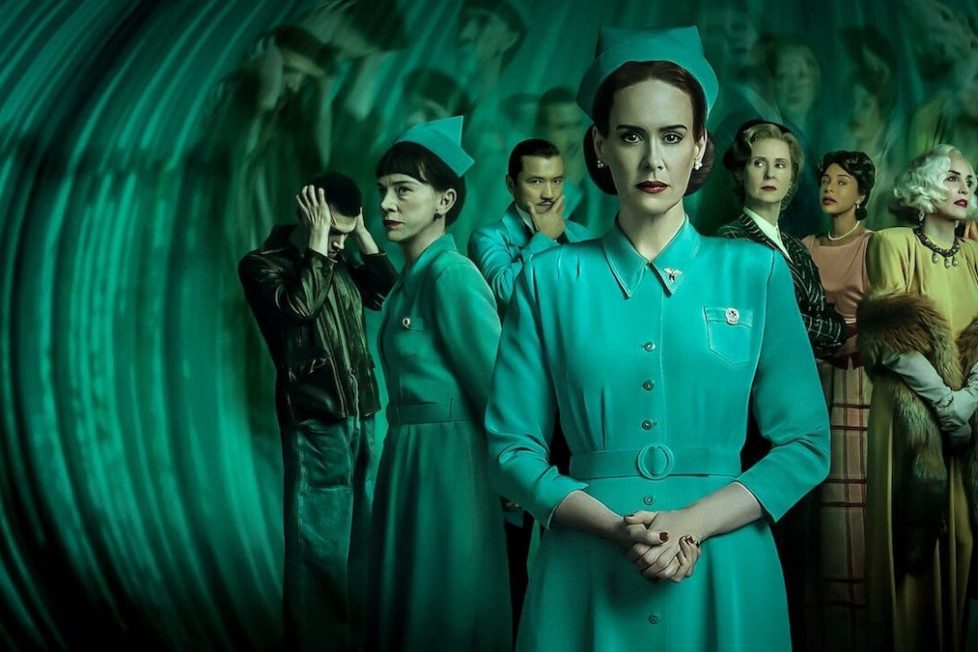
In 1947, Mildred Ratched begins working as a nurse at a leading psychiatric hospital. But beneath her stylish exterior lurks a growing darkness.


Ostensibly providing a quasi-origin story for the character of Nurse Ratched from One Flew Over the Cuckoo’s Nest (1975), Ratched is so colossally different in tone it’s likely to infuriate (not just disappoint) fans of Miloš Forman’s film. Or, for that matter, fans of Ken Kesey’s 1962 source novel.
Where Cuckoo’s Nest was gritty and determinedly unglamorous, Ratched is fanciful and overladen with cheap chic; where Cuckoo’s Nest was visually white and grey, Ratched is a riot of implausible colour; and where the Mildred Ratched of Cuckoo’s Nest was controlling and self-assured, this younger version (Sarah Paulson) is often vulnerable, even pitiable. She can be ruthless and manipulative, sure, but she can also show compassion and generosity, something the Ratched that won Louise Fletcher an Academy Award never did.
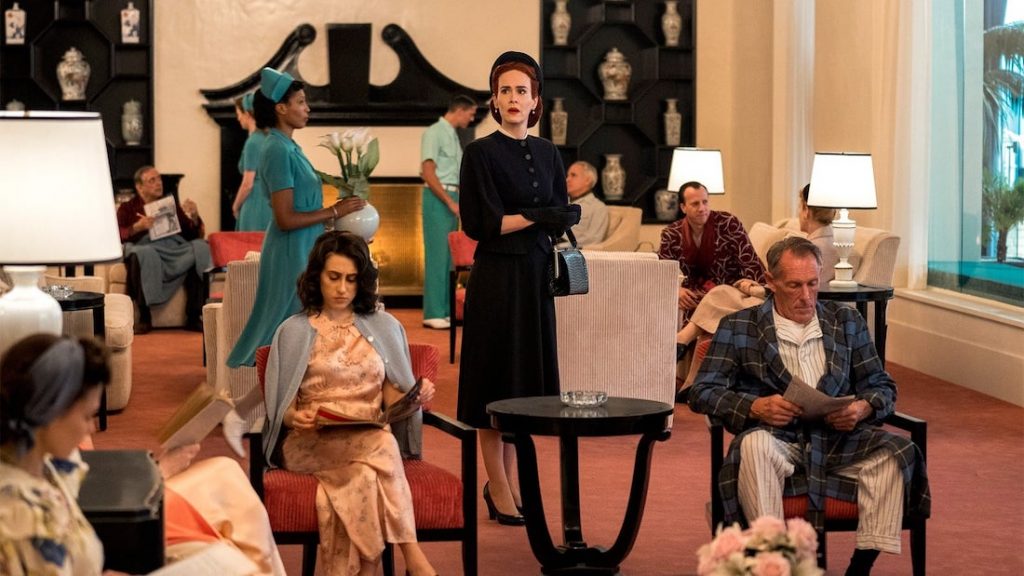
Of course, none of this would matter if Ratched actually was an origin story in the sense of revealing how Mildred grows from the uptight, insecure young woman of 1947 into the monster of Cuckoo’s Nest years later. However, although a second season’s been ordered already, the first season certainly does none of that. In fact, this Ratched becomes softer and more sympathetic, not less, as the episodes progress.
The upshot is watching Ratched in the context of One Flew Over the Cuckoo’s Nest is probably a mistake. It’s wiser to attribute the link to marketing and nothing more, and then take Ratched on its own terms. And on those terms (as an OTT, deliberately shocking, but never brave drama), it doesn’t deliver too badly, even if it’s slow to get going and easily distracted by sensational plot turns that sit uncomfortably with the quieter arc of Ratched’s sexual awakening.
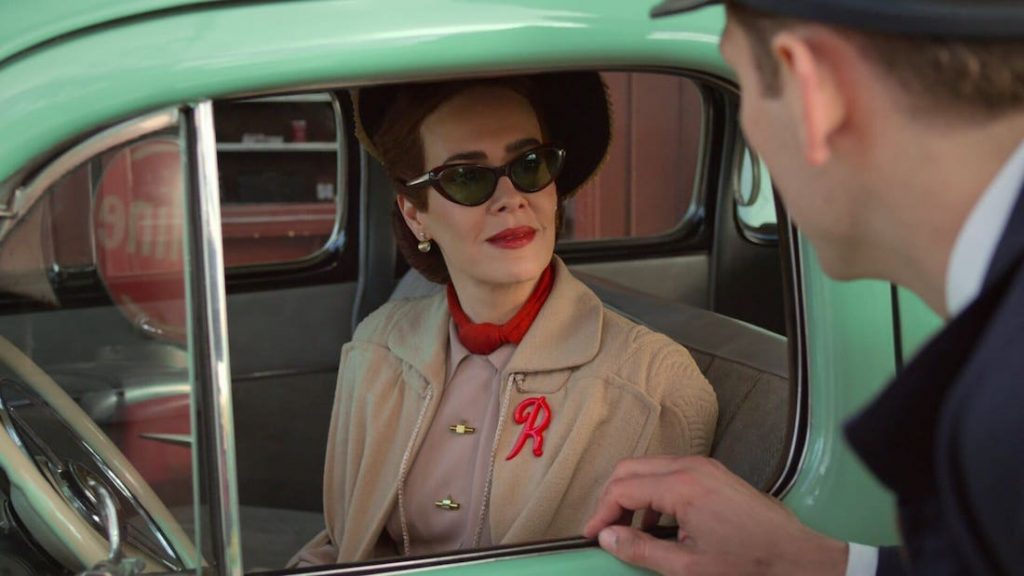
Ratched begins in a lurid manner it’ll maintain throughout, with a sinister young man lurking in the rain and thunder: Edmund (Finn Wittrock), who’s soon to become a mass murderer and set in motion the primary storyline of the series, despite being one of its least interesting characters. Soon enough we move to Lucia State Hospital, California, around where the action is centred, with Ratched (Paulson) arriving to browbeat Dr Hanover (Jon Jon Briones) into giving her a job on the nursing staff.
Ratched’s motives are ulterior and her nursing background questionable, although we don’t know that yet. The patients of the hospital are a flamboyant lot (one man claims to be a Shakespearean actor, one woman an opera singer), and the staff are equally caricatured. Some mysteries soon emerge, too: why, for example, is Dr Hanover so set on building an apparently pointless barn in the hospital’s grounds?
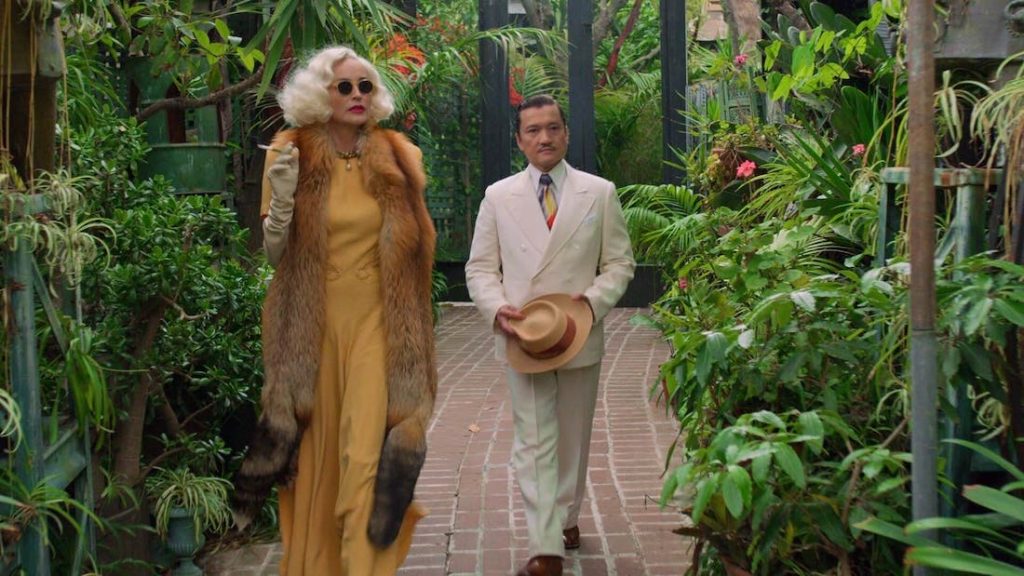
Against this background, Ratched spends its eight episodes exploring the machinations of the hospital staff, the patients, and others in the outside world. Important threads include the power struggle between Ratched and Nurse Betsy Bucket (Judy Davis); the romance that erupts between Edmund, now a patient, and trainee nurse Dolly (Alice Englert); a terrible incident in Dr Hanover’s past catching up with him; and, eventually, another romance between Ratched and the older Mrs Briggs (Cynthia Nixon), which is more tentative and cautious than the whirlwind passion of Edmund and Dolly.
But the storylines are not, frankly, interesting in and of themselves—because, with a few exceptions, we’re not persuaded to care how they turn out. While the people they involve are nearly all watchable, often droll and occasionally touching, for the most part, they also feel expendable and there mostly for amusement rather than to empathise with.
Fortunately, the characters are well-realised by most of the cast, cast even if they remain superficial. And this saves the show from tedium.
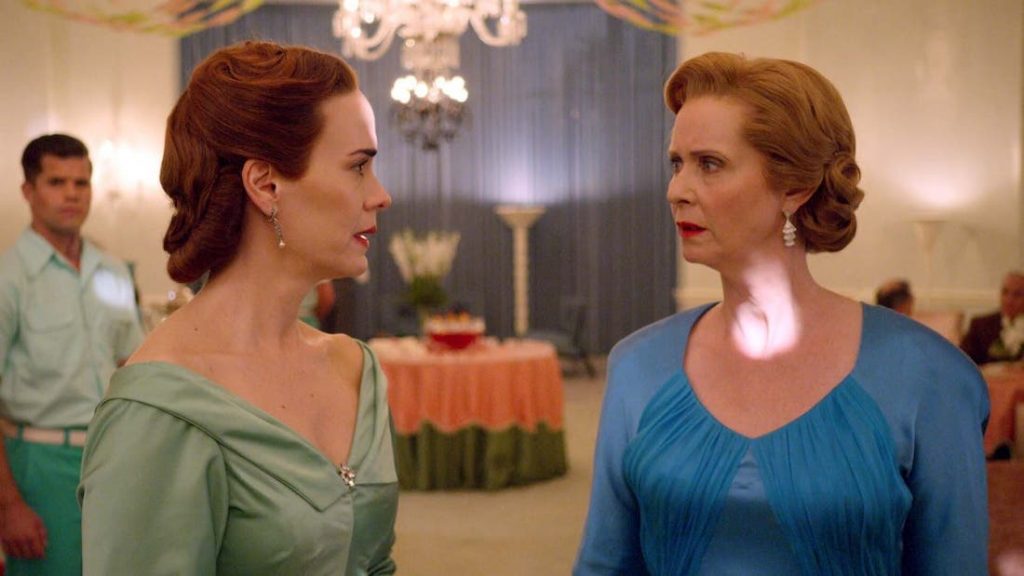
The outstanding acting pair is Nixon as Mrs Briggs (an astute woman who realises that, as a lesbian in an uncomprehending era when even Ratched believes sexuality can be deduced from the facial structure, she must be quietly strong rather than assertive), and Davis as Nurse Bucket. Davis contributes a superb performance: at first, she’s proprietorial, sourfaced, convinced of her own rightness, yet simperingly infatuated with Dr Hanover (who can’t stand her), but she becomes steadily more complex and likeable, just as the humanity beneath Ratched’s rigid surface is also revealed.
Ratched herself (the unlovely name evoking both “wretched” and “rat shit”), is an enigma to start with, although we slowly get to see beneath her brittle surface, as her insincere smiles allow the occasional sincere one through. Much of the work of carrying the series falls on Paulson’s shoulders, and she does it with poise and a convincing sense of an active mind behind the stiff demeanour, even if that stiffness itself means the range of her acting is often limited.
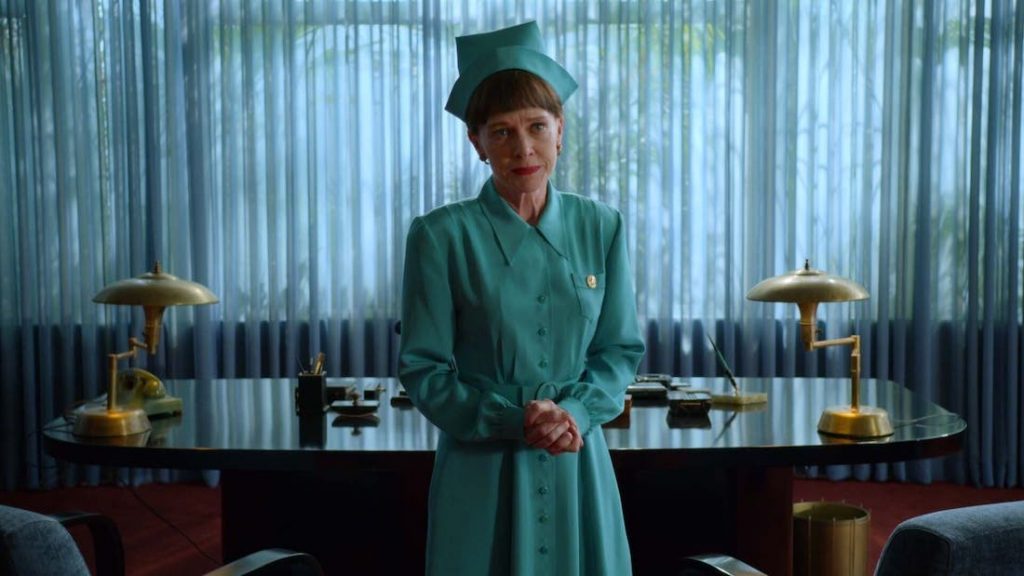
Paulson has the softly threatening delivery of Fletcher in Cuckoo’s Nest down well, and though she never shows the true cruelty of the Kesey/Forman version of the character (like her verbal unmanning of the boy Billy at the end of Cuckoo’s Nest), she’s cold enough to lobotomise a man who jeopardises her plans. And even when displaying mercy toward her patients it’s often of a rather brutal kind.
Also critical to the plot are hitman Wainwright (a good turn from Corey Stoll, who might as well be playing an amoral 1940s antihero) and his employer Miss Osgood (Sharon Stone, commanding the screen but never giving the sense she’s anything more than Sharon Stone). Stone possibly modelled her performance on Gloria Swanson’s from Sunset Boulevard (1950), complete with staircase and pet monkey.
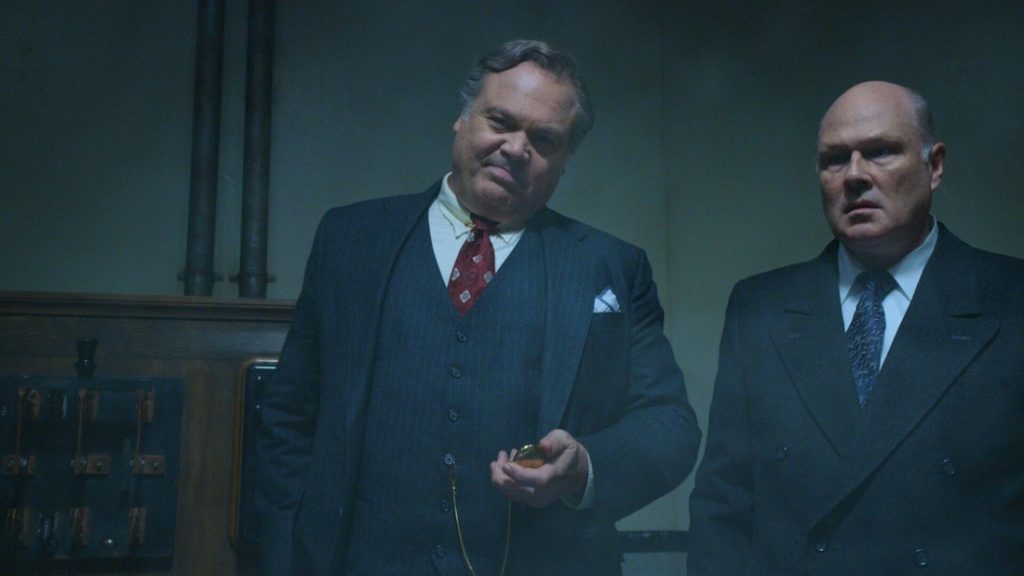
Osgood’s son Henry (Brandon Flynn) is nicely chilling, while male hospital orderly Huck (Charlie Carver) is one of the few favourably presented males in a largely female story; his combination of good heart and terrible wartime disfigurement clearly signposting a theme of the series: that there can be beauty inside even seemingly unattractive people, like Ratched or Bucket.
Memorable more minor parts abound, too, including the obnoxious Governor Wilburn (Vincent D’Onofrio, looking like he’s auditioning for an Orson Welles biopic), eccentric motel owner Louise (a gem of a performance from Amanda Plummer), and Mrs Briggs’s husband Trevor (Michael Benjamin Washington), a gay man who’s married her so they can both conceal their sexuality.
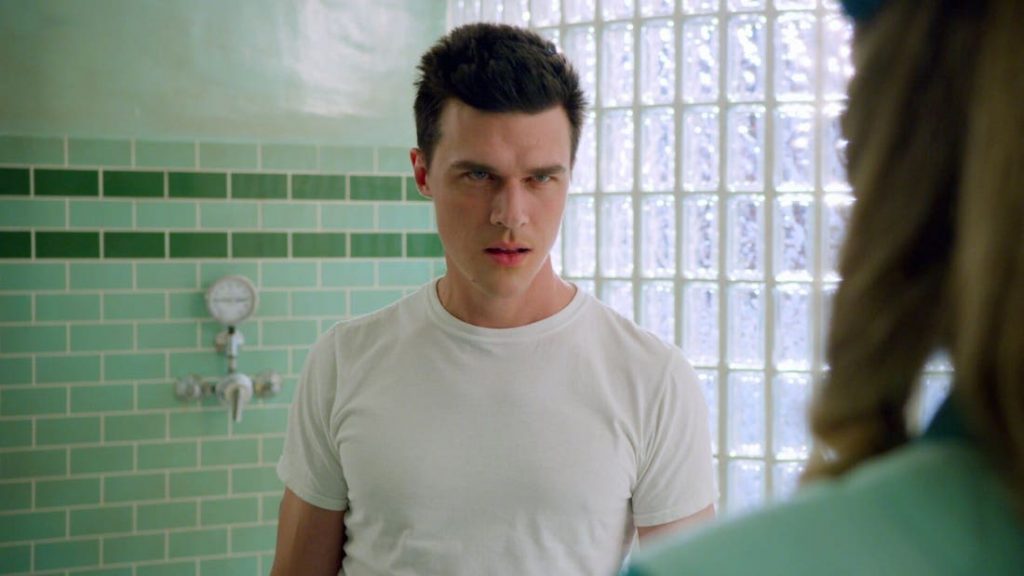
Englert is interesting as trainee nurse Dolly; at first apparently an airhead cliché but slowly revealing both intelligence and perhaps instability. The difference between her and Ratched is summed up in one illuminating exchange: Dolly asks “what’s so dangerous about an imagination?” and Ratched, still suppressing self-knowledge, replies “that depends on the contents of that imagination.”
Briones as Dr Hanover, meanwhile, is striking in a different way. He comes across as deliberately wooden and hyper-self-controlled, so that when he finally breaks down crying and says “I think I helped someone today” (virtually all of his psychiatric interventions prior to that have been disastrous), it’s all the more effective.
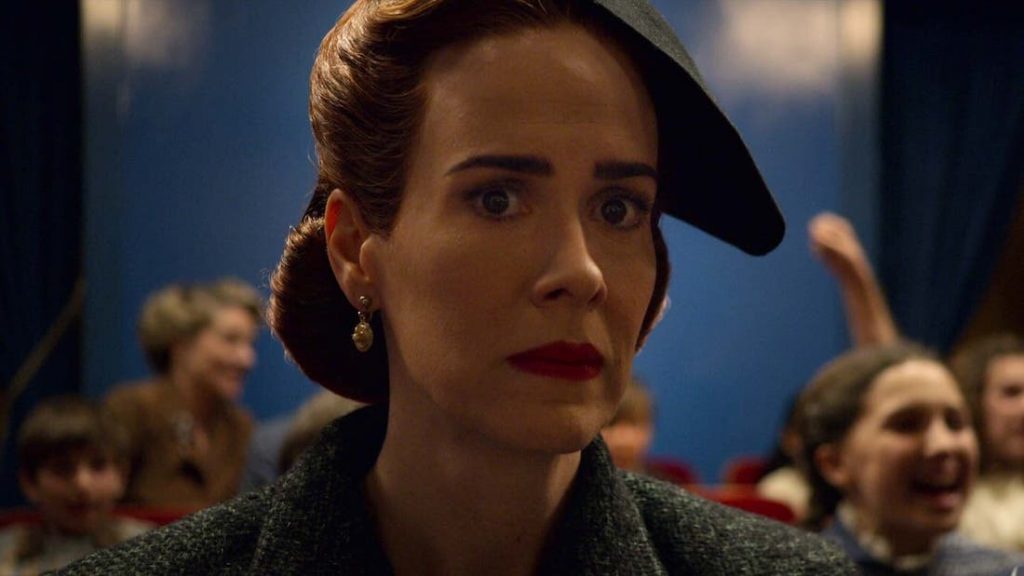
Less successful as a character is Miss Wells (Sophie Okonedo), who at different times believes she’s various other people, including Jesse Owens and an arrogant concert violinist. Nothing in Ratched can really be taken seriously, but this is the closest the show comes to laughing at mentally ill people and it’s prompted some disquiet. Okonedo over-acts hugely, but then the role as written couldn’t really be handled any other way!
This colourful array of personalities play out their shenanigans against a similarly larger-than-life series of opulent sets—literally larger than life, in fact, since most of the rooms are absurdly huge. Everything is shiny, clean as a whistle, and colour-schemed to within an inch of its life. A long Shining-like corridor in the hospital accentuates the unreality, as does the often stylised, almost balletic movement of the actors.
The rarity of close-ups, too, emphasises how producer (and director of two episodes) Ryan Murphy (Glee, American Horror Story) is far more interested in effect for effect’s sake than in any deep exploration of people or story. Although there are some thematic issues emerging from Ratched, like childhood, family, deception, oppression (strikingly symbolised by the lesbian bar hidden deep in the redwoods), they’re barely more than touched on. The clear agenda is simply to create a Hitchcock/Douglas Sirk mash-up of non-stop gaudy entertainment.
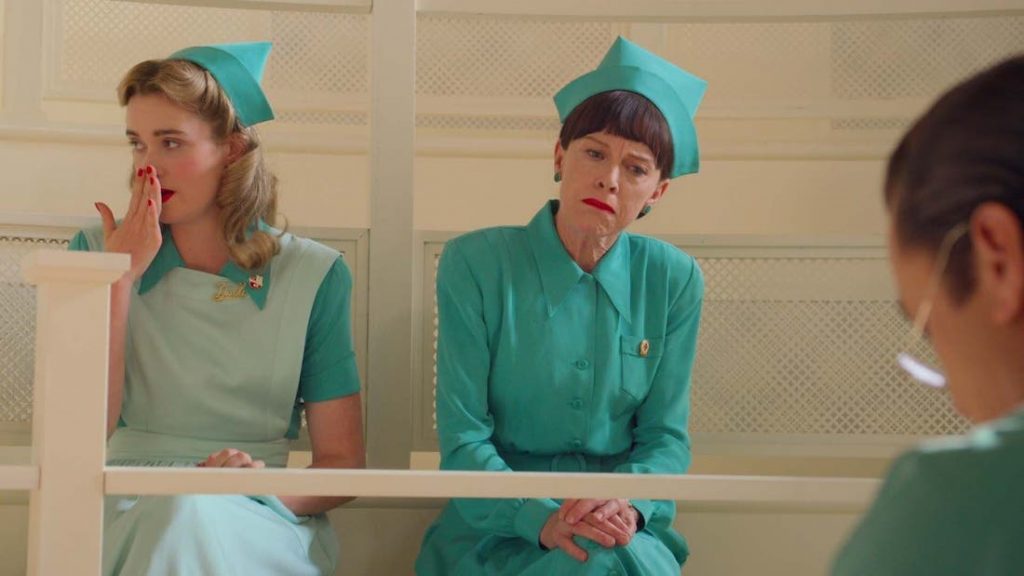
In this Ratched largely succeeds, even with its flaws. The first two episodes are slow, the extreme traumas portrayed (dismemberment, child sexual abuse, etc) often seem at odds with its flippant style, and occasionally the writing is clumsy. Notably, when Ratched seems to hallucinate a puppet show recounting her terrible childhood! At no other point in the series is she anything less than anchored in reality, and it’s impossible to avoid the conclusion that to Ratched’s creators the puppet show was an irresistible gimmick. It’s impactful in its own right, sure, but it fits awkwardly with everything that comes before and after.
On the plus side, however, there are many genuinely witty little touches, a score by Mac Quayle which is an amusing (at least, a mildly amusing) pastiche of 1950s thriller music, and occasionally beautiful photography, including a shooting death that recalls Bonnie and Clyde (1967). It’s also difficult to completely resist the sheer camp of a show that features Nurse Bucket promising “I will soak the sodomy right out of them!”
Most importantly, though, there’s some high drama that grabs the attention, for example at the end of episode 5, when at least a handful of the characters develop in ways that keep us engaged with them. And the performances are mostly first-rate given the limitations of the script. Just don’t expect a classic like Cuckoo’s Nest.
USA | 2020 | 433 MINUTES • 8 EPISODES | 16:9 HD | COLOUR | ENGLISH

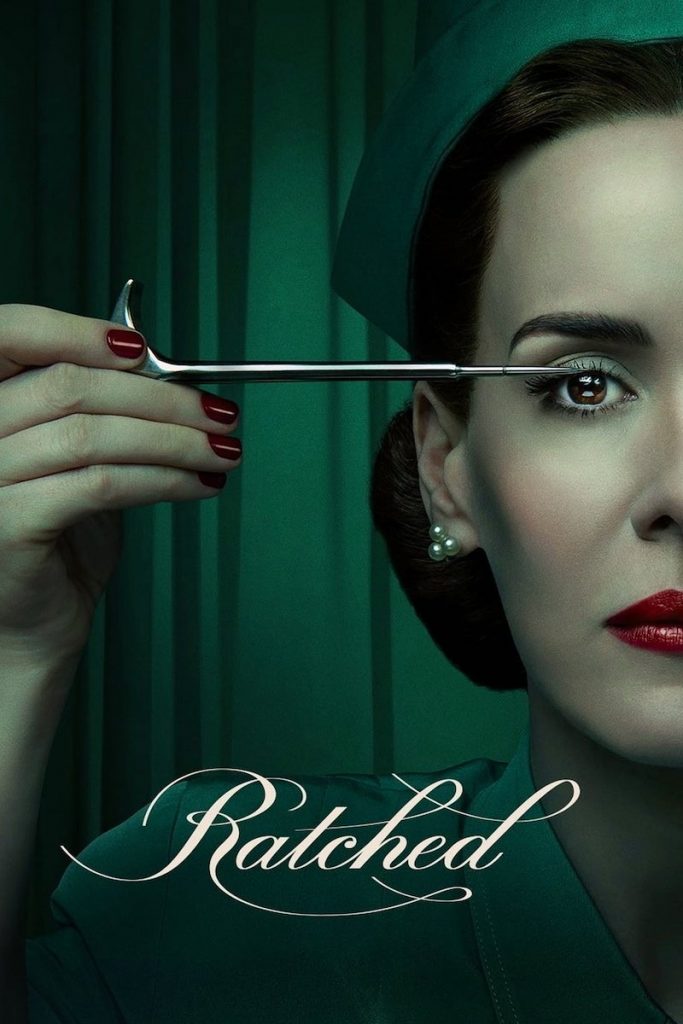
writers: Evan Romansky, Ian Brennan & Jennifer Salt.
directors: Ryan Murphy, Nelson Cragg, Michael Uppendahl, Jessica Yu, Jennifer Lynch & Daniel Minahan.
starring: Sarah Paulson, Finn Wittrock, Cynthia Nixon, Jon Jon Briones, Charlie Carver, Judy Davis & Sharon Stone.
